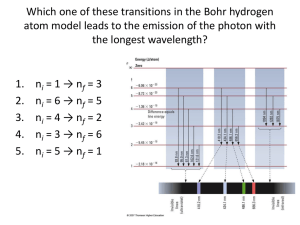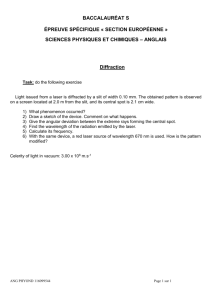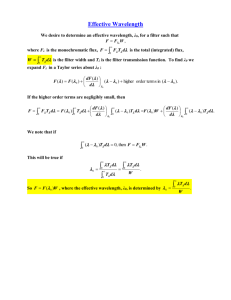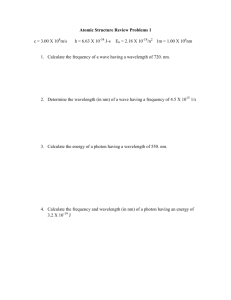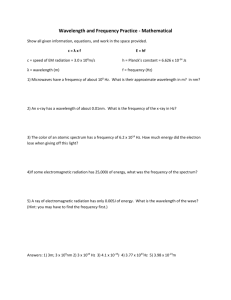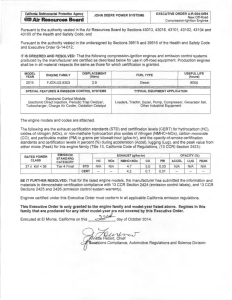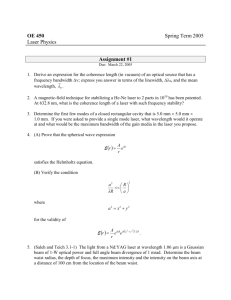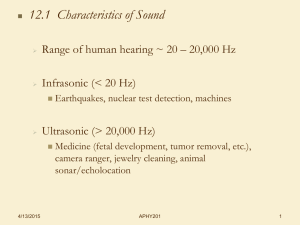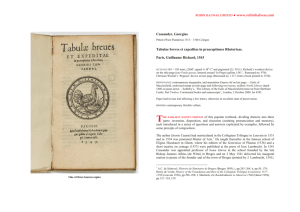Exercises on fiber dispersion
advertisement
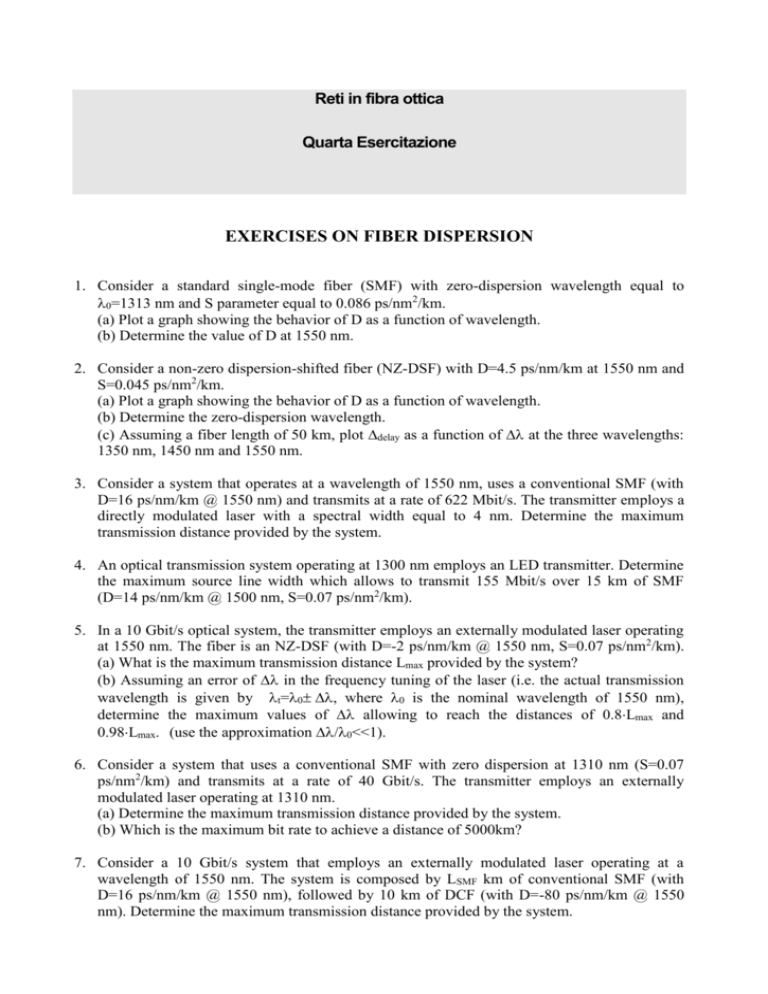
Reti in fibra ottica Quarta Esercitazione EXERCISES ON FIBER DISPERSION 1. Consider a standard single-mode fiber (SMF) with zero-dispersion wavelength equal to 0=1313 nm and S parameter equal to 0.086 ps/nm2/km. (a) Plot a graph showing the behavior of D as a function of wavelength. (b) Determine the value of D at 1550 nm. 2. Consider a non-zero dispersion-shifted fiber (NZ-DSF) with D=4.5 ps/nm/km at 1550 nm and S=0.045 ps/nm2/km. (a) Plot a graph showing the behavior of D as a function of wavelength. (b) Determine the zero-dispersion wavelength. (c) Assuming a fiber length of 50 km, plot delay as a function of at the three wavelengths: 1350 nm, 1450 nm and 1550 nm. 3. Consider a system that operates at a wavelength of 1550 nm, uses a conventional SMF (with D=16 ps/nm/km @ 1550 nm) and transmits at a rate of 622 Mbit/s. The transmitter employs a directly modulated laser with a spectral width equal to 4 nm. Determine the maximum transmission distance provided by the system. 4. An optical transmission system operating at 1300 nm employs an LED transmitter. Determine the maximum source line width which allows to transmit 155 Mbit/s over 15 km of SMF (D=14 ps/nm/km @ 1500 nm, S=0.07 ps/nm2/km). 5. In a 10 Gbit/s optical system, the transmitter employs an externally modulated laser operating at 1550 nm. The fiber is an NZ-DSF (with D=-2 ps/nm/km @ 1550 nm, S=0.07 ps/nm2/km). (a) What is the maximum transmission distance Lmax provided by the system? (b) Assuming an error of in the frequency tuning of the laser (i.e. the actual transmission wavelength is given by t=0, where 0 is the nominal wavelength of 1550 nm), determine the maximum values of allowing to reach the distances of 0.8Lmax and 0.98Lmax. (use the approximation /0<<1). 6. Consider a system that uses a conventional SMF with zero dispersion at 1310 nm (S=0.07 ps/nm2/km) and transmits at a rate of 40 Gbit/s. The transmitter employs an externally modulated laser operating at 1310 nm. (a) Determine the maximum transmission distance provided by the system. (b) Which is the maximum bit rate to achieve a distance of 5000km? 7. Consider a 10 Gbit/s system that employs an externally modulated laser operating at a wavelength of 1550 nm. The system is composed by LSMF km of conventional SMF (with D=16 ps/nm/km @ 1550 nm), followed by 10 km of DCF (with D=-80 ps/nm/km @ 1550 nm). Determine the maximum transmission distance provided by the system. 8. In a 40 Gbit/s optical system, the transmitter employs an externally modulated laser operating at 1550 nm. The fiber is an NZ-DSF (with D=-2 ps/nm/km @ 1550 nm, S=0.07 ps/nm2/km). (a) What is the maximum transmission distance Lmax provided by the system? (b) Assuming to use a DCF with D=16 ps/nm/km at the end of the system, which is the minimum length of the DCF to reach a total transmission distance of 50 km?
